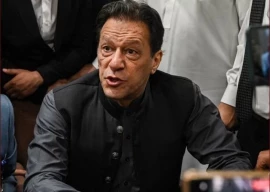
“The region needs to build a trust fund to cope with trade, investment and human vulnerabilities,” Dr Debapriya Bhattacharya, Senior Fellow at the Dhaka-based Centre for Policy Dialogue said in his keynote speech at the inaugural plenary of the 18th Sustainable Development Conference on “Securing peace and prosperity” organised by the Sustainable Development Policy Institute (SDPI) here on Tuesday.
He emphasised the need for availability of critical data for development and policy making at the regional level.
At a session on “Sustainable transportation and logistics corridors in South Asia”, Senator Naveed Qamar highlighted the lack of push factor in business communities and civil society in the region to urge their respective governments for eradicating logistic barriers to cross-border trade.

Sri Lankan Federation of Chambers of Commerce and Industry President Ajith Wattuhewa said that there was a need to improve the flow of cross-border freight (CBF) for a sustainable transportation system.
The UN Economic and Social Commission for Asia and the Pacific consultant Joseph George proposed a regional cooperation framework for the facilitation of international railway transport.
Nepal’s Interstate Multi-Modal Transport Managing Director R.B. Rauniyar cited the India-Nepal railway link as a prototype for other sub-regional transport corridors.
India’s Research and Information System for Developing Countries Fellow Dr Prabir De called for a regional green fund for sustainable transport and logistics corridors in South Asia.
At a session on “Macroeconomic stability and sustainable growth: perspectives from South Asia”, former economic adviser Saqib Sherani said that current IMF programmes were unlikely to trigger sustainable growth because those were pro-cyclical in nature and not structural.
Dr Syed Akmal Hussain suggested removal of physical constraints to growth by providing adequate infrastructure.

Dr Shahid Ahmed, from New Delhi’s Jamia Millia Islamia said that the regional economies were in disequilibrium due to continuous inflationary pressure.
Writer Michael Dauderstädt shared his experiences on monetisation of the economy.
At a session on “Intra-regional investment and supply chains in South Asia”, special assistant to Prime Minister on investment Dr Miftah Ismail said that economic barriers to trade and regional integration must be resolved.
World Bank Economist Sanjay Kathuria said that the South Asian advocated provision of conducive environment for both outward and inward flows of foreign direct investment (FDI).
Reiterating the need to promote a homogeneous business environment in South Asia, Centre for Policy Dialogue, Bangladesh Additional Research Director Dr Khondaker Golam said that there needed to be a policy of “open regionalism” for FDI in South Asia.
At a session on “Services trade in Asia”, SDPI Senior Research Fellow Dr Sajid Amin stressed the need for piecemeal research for developing a framework for liberalising services trade in South Asia.
Subhashini Abeysinghe from Verité Research, Sri Lanka called for liberalising trade services in the region.
Rajan Sudesh from the UNESCAP said that education was the key service for ensuring a sustainable future for South Asia.
Published in The Express Tribune, December 9th, 2015.





1724319076-0/Untitled-design-(5)1724319076-0-270x192.webp)


1726732405-0/Express-Tribune-Web-(15)1726732405-0-270x192.webp)


1735025557-0/Untitled-(96)1735025557-0-270x192.webp)











COMMENTS
Comments are moderated and generally will be posted if they are on-topic and not abusive.
For more information, please see our Comments FAQ